Amanda Brugel Has a Game-Changing Theory About Rita in 'Handmaid's Tale'
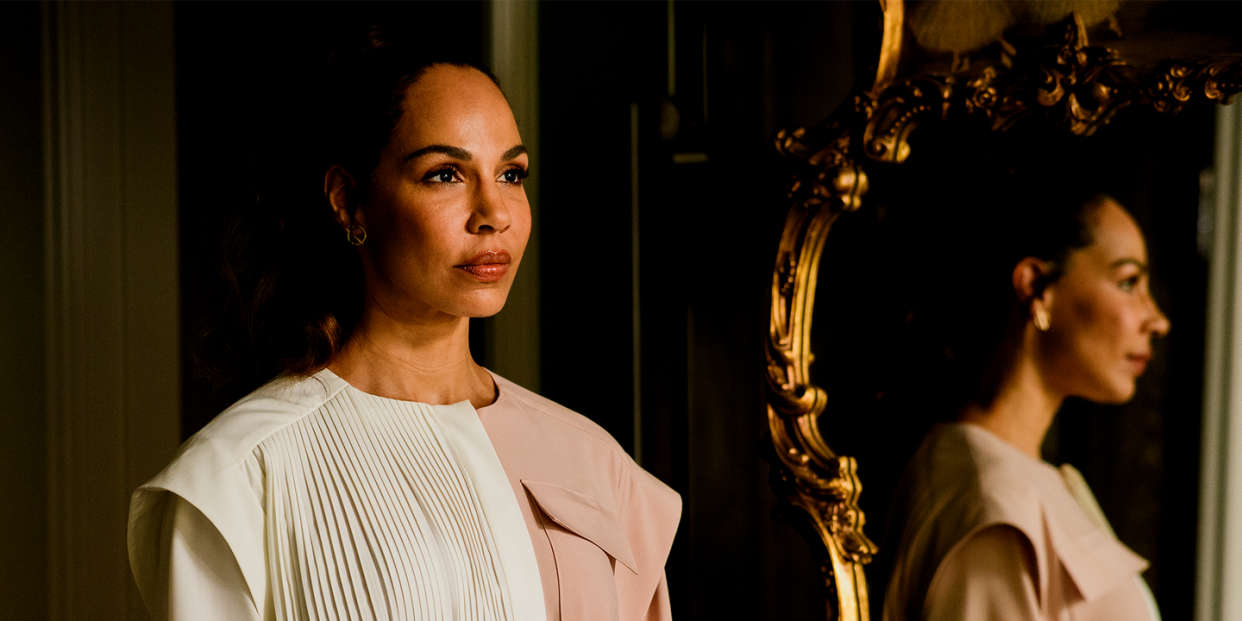
The Handmaid's Tale wrapped its third season on an uncharacteristically hopeful note, as June and the Martha network pulled off their long-planned, incredibly dangerous rescue mission, smuggling more than 100 children out of Gilead into Canada. Amanda Brugel's Rita—who's long been the most prominent Martha in the show, but remains one of its most mysterious characters—played a critical role in the final execution of the plan, leading the children to safety while June created a distraction for the guards.
In the final moments of the episode, an emotional Rita gets off the plane in Canada alongside the children, and interacts for the first time with Emily (Alexis Bledel) and Luke (O-T Fagbenle). The stirring scene features some of the best performances of the season. Brugel spoke to BAZAAR.com about filming that "surreal" moment, the aspect of Season 3 that confused her, and the game-changing theory she has about Rita.
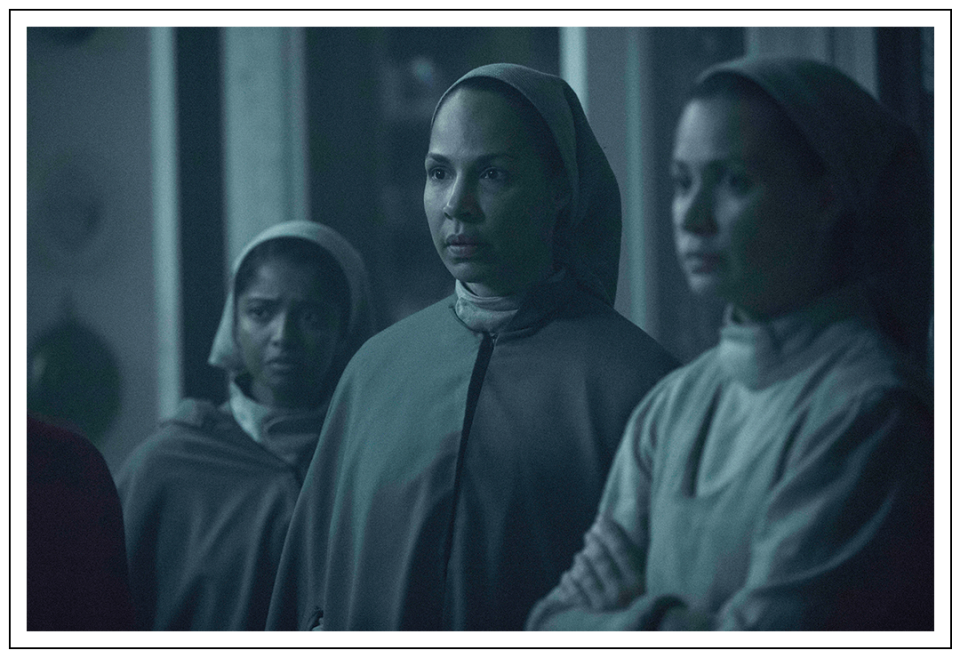
Rita plays a huge role in the finale, and at the end, you have this very emotional scene. What was that like?
That entire scene was surreal. Of all three seasons, it's the most emotionally rewarding stuff I've taken a bite out of, and it's the most I've been on camera. I was a bit scared going into it because I've carved out a nice little spot for Rita, where she's silent and stoic, and I was wary about suddenly having to get off a plane and have this huge emotional scene with two actors who I haven't acted with before. But the cast has known each other for years, so it was actually a treat to use different muscles and work with different performers besides Elizabeth and Yvonne. I'd been using the two of them as a crutch because they're so brilliant.
We’ve rarely seen Rita show any kind of emotion before.
Yeah, and I didn't know she was going to escape until I got the script, about four days before we started shooting. I had no idea what her participation in the resistance was. I had to do very quick research to see what happens to people when they're taken out of a horrific situation and brought back [to normalcy]—just the amount of shock and relief and joy, and also pain and fear.
I realized I won't be able to wear that costume again. Other actors have had flashbacks where they’ve worn other costumes, but for me, that costume has been like a character within a character for me. I can understand that if someone was taken out of a horrible situation, like with Stockholm syndrome, it must be terrifying to be placed in a new environment and not have that space and that place, however horrible, to rely on.
What did you think of Rita’s arc this season?
Initially, I was a bit confused when I read the first four or five scripts, because it seemed to be an about-face with her relationship with Serena Joy. Truthfully, I didn't know how I was going to make that happen as an actor, and as a fan of the show. But the more I researched and the more I started to think about their relationship, it made complete sense to me. At the end of the day, Serena and Fred were her only home and her only family, and we adapt in even the most horrific situations, so I can see that she formed a bond with Serena and associated her with family. Ultimately it made sense that they grew closer this year, especially after they were ousted from the house. The first word I wrote down, in all-cap letters, was "Stockholm syndrome." Then I researched the heck out of it.
And June is in a position to be a bit more openly defiant than Rita can.
Handmaids certainly don’t have a huge position of power, but they hold much greater power than the Marthas. Rita’s home, her means to survival, her purpose are all tied up in Serena and the Commander. I can understand how it would be difficult for her to hate Serena entirely, despite everything.
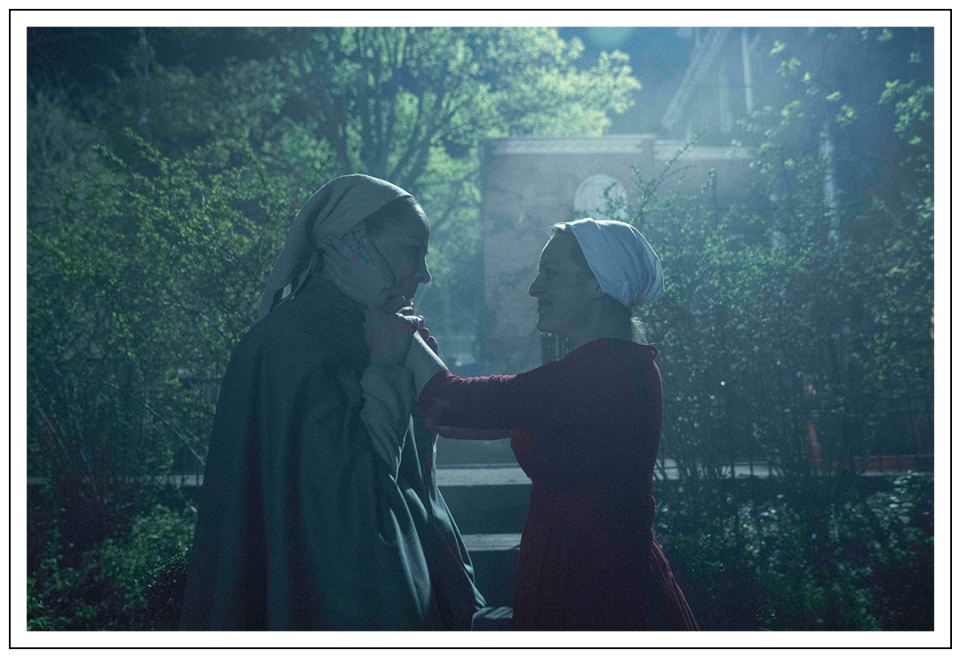
We learned a bit of Rita’s backstory in Season 1—that she had a son who died in the war. Do you know any more about her than what we’ve see in the show?
I have so many theories. I mean, a backstory would be lovely. I do think Rita's remarkably clever, and she's able to navigate different personalities quite well, so I've always assumed that she was a professional, some sort of lawyer, or the head of a company, and knows how to lead people, and also how to let other people take the fall. I feel like she's a bit manipulative in that way.
I had an original theory that she was secretly a Handmaid; I wrote my thesis at university on this, I suggested that Rita was a Handmaid and then somehow managed to bribe a guard or someone because it was easier to be a Martha. I mean, Marthas, if you get a child in the house, you have a job for 18 years. You have a home. There's no rape. So I always had this theory that Rita was secretly a Handmaid, and just sort of smuggled her way into that profession. I don't know if they'll use that, but I've been pushing that since Season 1!
That would be such a good twist! An undercover Handmaid.
I like to think that if [Gilead] were to happen [in real life], a lot of people would come up with ways to bend the rules, and there'd be a lot of things going on behind the scenes. For me, as Amanda, I thought that would make the most sense. If I had to exist within Gilead, I'd want to be a Martha. I think Rita's a bit sneaky that way.
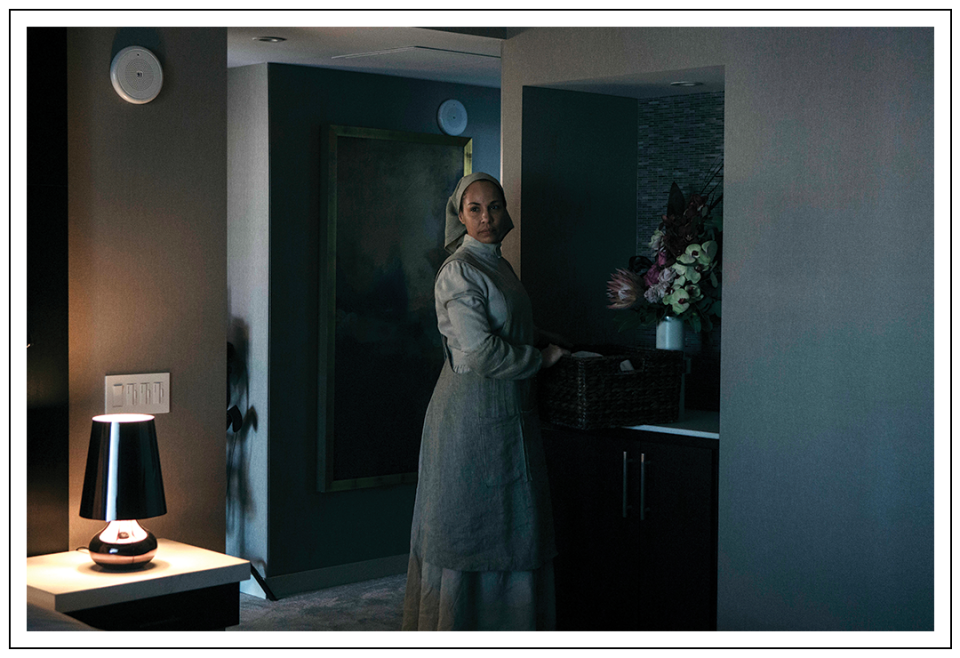
The ending aside, were there any other scenes that stand out in your memory from shooting Season 3?
My favorite was in the finale, where none of us are saying anything, but you have to imagine weaving through the beautiful forest in April in Canada with 152 little boy and girl extras. We were walking in silence, and we were all so emotional imagining taking these children to safety. All these actors are now my close girlfriends, and it felt like we were really doing something for the audience, like creating a sense of hope in embodying these courageous women. We were so happy to do it. I was at the finale [screening] in LA last week, and people were standing, and screaming, and shouting, and you want that. By far, Episode 13 was the most beautiful piece of television I've ever been a part of.
When you share pictures from set, they make it look like a light-hearted and fun environment, despite how dark the show is.
Oh, it’s too much fun. I got to go to Loaves and Fishes this season, after my third year of not ever being able to leave the house. I was so excited to finally go to that set. I was running around touching everything. I stole something, one of the cans—sorry, props. And Lizzie and I—I don't even know what we were gossiping about—but we got into so much trouble that we had to be separated. We often have to be separated! If I'm with Madeline [Brewer], that's a disaster as well. We just genuinely, genuinely like one another, and we don't get to see each other when we're not filming, so we talk nonstop about the silliest things, and then we also get quite political, and then the crew joins in. It's a wonderful environment.
It must be hard not to get political, considering how horribly timely the show always manages to feel.
I said last year it's almost like [the writers] have a deal with the devil, and I hate saying that! But they write it seven months in advance, and it’s like, how could they possibly know what is going to come out in the news seven months in advance? But unfortunately, politics and political movements are cyclical, and these themes of oppression are recurring. I don’t know if it’s because the writers, like Margaret [Atwood], are pulling ideas from the past, and they're coming back up just because that's unfortunately how life evolves. We still can’t seem to figure out how to treat each other, unfortunately.
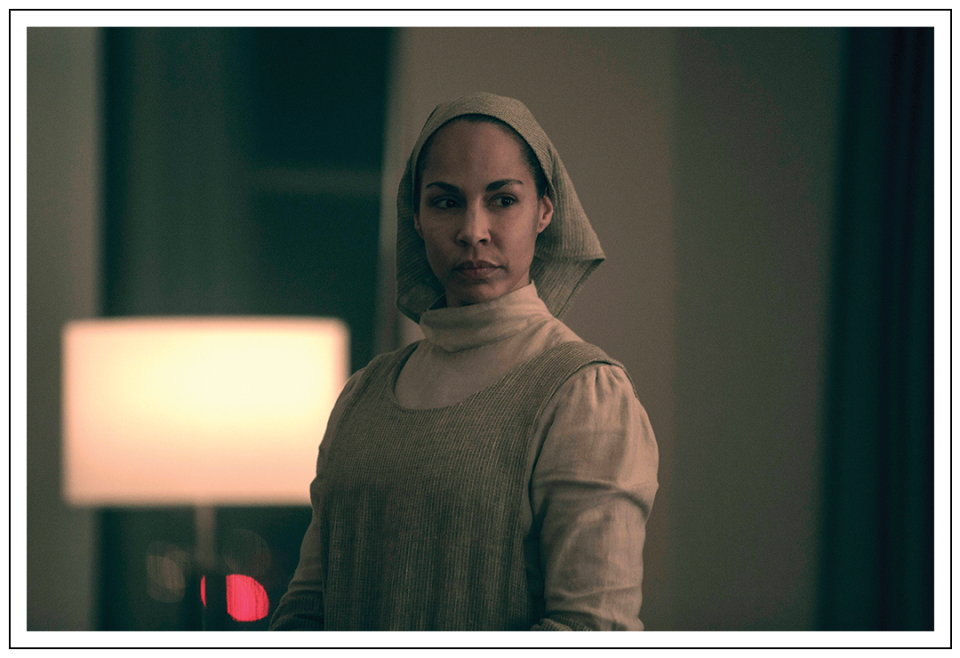
You Might Also Like

